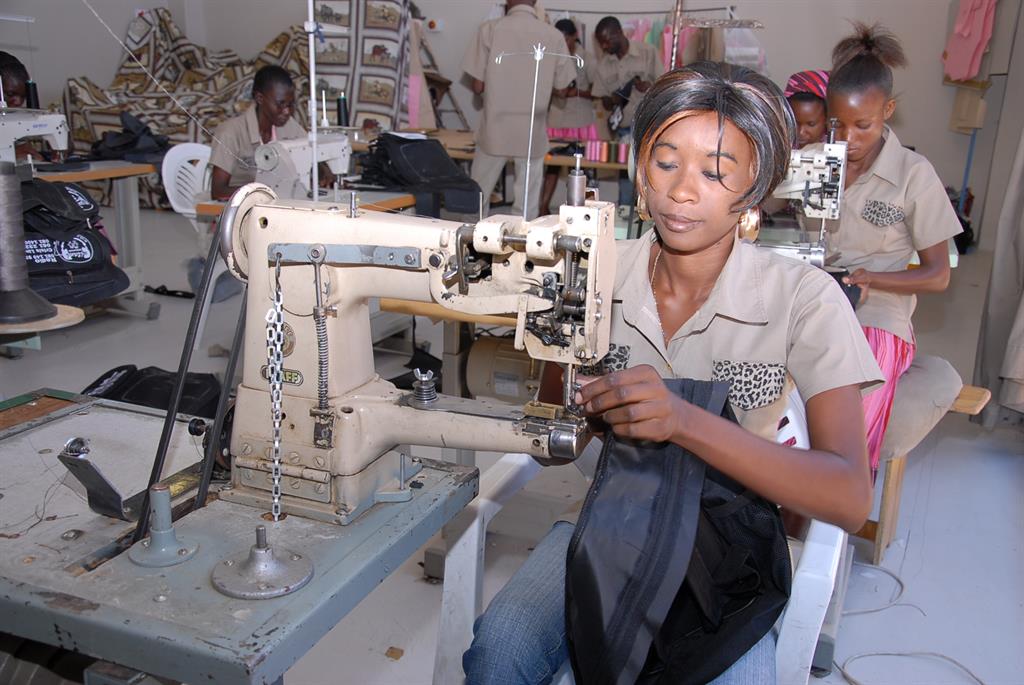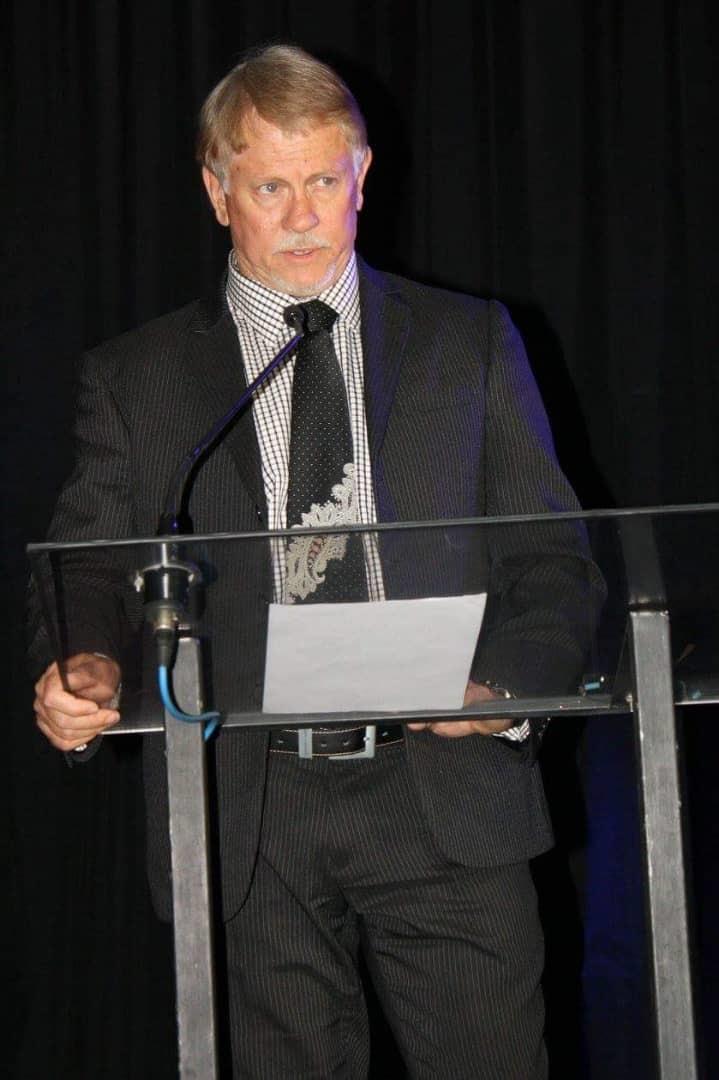Time to think outside the box
Namibia’s manufacturing sector has been struggling to flourish, registering mere annual growth of 0.3% in the third quarter of 2019, according to the latest figures by the Namibia Statistics Agency. Ronnie Varkevisser, the chief executive officer of the Namibian Manufacturers’ Association (NMA), talks to Business7 about the state of the...
B7: Summarise the history of the Namibian Manufacturers’ Association (NMA): its origin, goals, mandate and progress.
RV: The NMA was first established in 1994 by a few manufacturers who needed a representative body to speak collectively on their behalf. It was relaunched in 2002 as a Section 21 company.
The NMA has a mandate to represent its members (and be their voice), on cross-cutting issues that in itself is a challenge for the manufacturing sector. These issues include very expensive electricity, water scarcity, access to finance for SMEs, limited opportunities to get their products on retailers’ shelves, obtaining work permits timeously, value-added tax (VAT) payments, manufacturing incentives, shortage of skilled labour and high labour cost, to name but a few.
The NMA currently has 103 members representing an estimated 30 000 employees in the manufacturing sector. In 2014 the NMA received the award for being the “Best Business Support Organisation” (BSO) in Namibia.
B7: Describe the current state of manufacturing in Namibia.
RV: Poor.
For the past six to seven years, manufacturing has been moving backwards if you take into account its contribution to the gross domestic product (GDP).
B7: Has the “Growth at Home” strategy been successful?
RV: It has had very limited success. Faster and more focussed execution is needed.
However, the implementation has also ‘stalled’ due to a lack of funds.
B7: Has the Namibian consumer - private and business - become more aware of the importance to support local products?
RV: From my perspective, yes.
B7: What are the major obstacles faced by manufacturers?
RV: Apart from the issues in my answer to your first question, the following: Limited start-up opportunities for entrepreneurs due to very limited access to proper financial assistance and the cumbersome business registration process. Also, the current new procurement bill is not fully functioning as it should, and local manufacturers do not receive the full benefit of government tenders.
B7: Some local manufacturers have been very successful. What are they doing right?
RV: They have the right internal infrastructure and processes - budget/finance, marketing, skills, focussed target market, etc. - and the passion to succeed.
B7: NMA chairperson Brian Black recently said Namibia needs to think seriously about whether it really wants a manufacturing sector as government isn't delivering on support promises. Your comment?
RV: I agree.
The recent comments of the minister of trade, industrialisation and SME development, the slow and limited success of the Growth at Home strategy, the limited success of NDP4 [4th National Development Plan], and the current elephant in the room – the perceived corruption in government - all speak for itself.
B7: Trade minister Tjekero Tweya recently blasted government's investment policy - or the lack thereof. Your thoughts?
RV: I was quoted in the newspapers that the NMA agree.
I want to add that the different government ministries must align themselves better in order to pull in the same direction, thereby creating a better environment to support the manufacturing industry and growing Namibia’s economy.
B7: What are the growth opportunities in the sector?
RV: The ministry of trade, industrialisation and SME development launched ten initiatives more than two years ago - i.e. metal fabrication, leather, charcoal, cosmetics, pharmaceuticals, etc. - that have been identified as possible sub-sector growth opportunities in the sector. However, again the lack of necessary funding is hampering the implementation of these initiatives.
B7: Manufacturers are having a tough time. What is your message to them?
RV: Times are tough. However, tough times and challenges always present opportunities if it is carefully analysed and acted upon.
An out-of-the-box thinking process is fundamental during these times together with a heightened focus on their core products/strengths. They must also seriously consider becoming a member of the NMA so we can become an even stronger representative body to interact with all relevant stakeholders and to influence government policies.
B7: And to the consumer?
RV: They must spend their money wisely, don’t overburden themselves with nice to haves, but at all times try to support local products and services. Hang in there!
B7: Any closing thoughts?
RV: I think the above-mentioned feedback is a good summary of my thoughts.
However, a burning issue is the current lack of any incentives for manufacturers, as it is a serious constraint for manufacturers to grow/expand, create jobs and thereby supporting Vision 2030.
It is common knowledge that all countries that have a strong and vibrant economy, have strong manufacturing sectors.
The multiplier effect of manufacturing – for every job created in manufacturing, 3 to 4 jobs elsewhere are created; for every N$1 spent in manufacturing, N$3 to N$4 dollars are spent elsewhere - must be taken into consideration when government contemplate changing current policies or implementing new policies that will have an effect on manufacturing.
RV: The NMA was first established in 1994 by a few manufacturers who needed a representative body to speak collectively on their behalf. It was relaunched in 2002 as a Section 21 company.
The NMA has a mandate to represent its members (and be their voice), on cross-cutting issues that in itself is a challenge for the manufacturing sector. These issues include very expensive electricity, water scarcity, access to finance for SMEs, limited opportunities to get their products on retailers’ shelves, obtaining work permits timeously, value-added tax (VAT) payments, manufacturing incentives, shortage of skilled labour and high labour cost, to name but a few.
The NMA currently has 103 members representing an estimated 30 000 employees in the manufacturing sector. In 2014 the NMA received the award for being the “Best Business Support Organisation” (BSO) in Namibia.
B7: Describe the current state of manufacturing in Namibia.
RV: Poor.
For the past six to seven years, manufacturing has been moving backwards if you take into account its contribution to the gross domestic product (GDP).
B7: Has the “Growth at Home” strategy been successful?
RV: It has had very limited success. Faster and more focussed execution is needed.
However, the implementation has also ‘stalled’ due to a lack of funds.
B7: Has the Namibian consumer - private and business - become more aware of the importance to support local products?
RV: From my perspective, yes.
B7: What are the major obstacles faced by manufacturers?
RV: Apart from the issues in my answer to your first question, the following: Limited start-up opportunities for entrepreneurs due to very limited access to proper financial assistance and the cumbersome business registration process. Also, the current new procurement bill is not fully functioning as it should, and local manufacturers do not receive the full benefit of government tenders.
B7: Some local manufacturers have been very successful. What are they doing right?
RV: They have the right internal infrastructure and processes - budget/finance, marketing, skills, focussed target market, etc. - and the passion to succeed.
B7: NMA chairperson Brian Black recently said Namibia needs to think seriously about whether it really wants a manufacturing sector as government isn't delivering on support promises. Your comment?
RV: I agree.
The recent comments of the minister of trade, industrialisation and SME development, the slow and limited success of the Growth at Home strategy, the limited success of NDP4 [4th National Development Plan], and the current elephant in the room – the perceived corruption in government - all speak for itself.
B7: Trade minister Tjekero Tweya recently blasted government's investment policy - or the lack thereof. Your thoughts?
RV: I was quoted in the newspapers that the NMA agree.
I want to add that the different government ministries must align themselves better in order to pull in the same direction, thereby creating a better environment to support the manufacturing industry and growing Namibia’s economy.
B7: What are the growth opportunities in the sector?
RV: The ministry of trade, industrialisation and SME development launched ten initiatives more than two years ago - i.e. metal fabrication, leather, charcoal, cosmetics, pharmaceuticals, etc. - that have been identified as possible sub-sector growth opportunities in the sector. However, again the lack of necessary funding is hampering the implementation of these initiatives.
B7: Manufacturers are having a tough time. What is your message to them?
RV: Times are tough. However, tough times and challenges always present opportunities if it is carefully analysed and acted upon.
An out-of-the-box thinking process is fundamental during these times together with a heightened focus on their core products/strengths. They must also seriously consider becoming a member of the NMA so we can become an even stronger representative body to interact with all relevant stakeholders and to influence government policies.
B7: And to the consumer?
RV: They must spend their money wisely, don’t overburden themselves with nice to haves, but at all times try to support local products and services. Hang in there!
B7: Any closing thoughts?
RV: I think the above-mentioned feedback is a good summary of my thoughts.
However, a burning issue is the current lack of any incentives for manufacturers, as it is a serious constraint for manufacturers to grow/expand, create jobs and thereby supporting Vision 2030.
It is common knowledge that all countries that have a strong and vibrant economy, have strong manufacturing sectors.
The multiplier effect of manufacturing – for every job created in manufacturing, 3 to 4 jobs elsewhere are created; for every N$1 spent in manufacturing, N$3 to N$4 dollars are spent elsewhere - must be taken into consideration when government contemplate changing current policies or implementing new policies that will have an effect on manufacturing.






Kommentar
Allgemeine Zeitung
Zu diesem Artikel wurden keine Kommentare hinterlassen